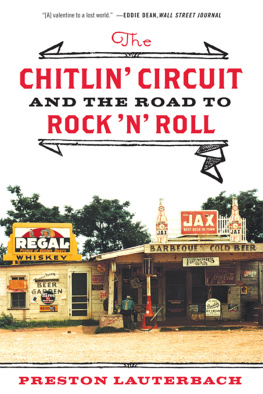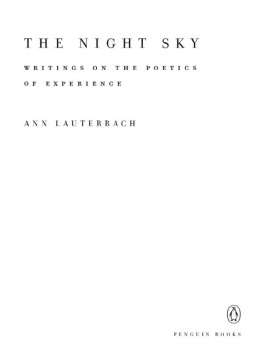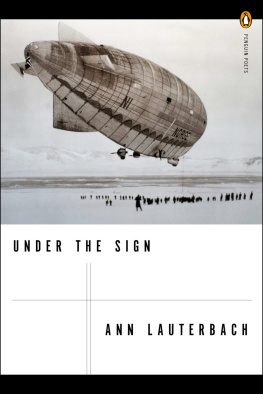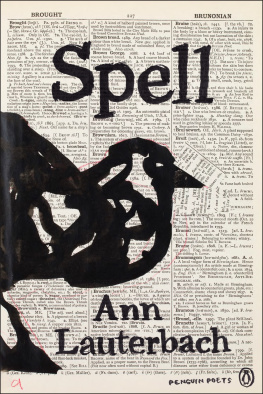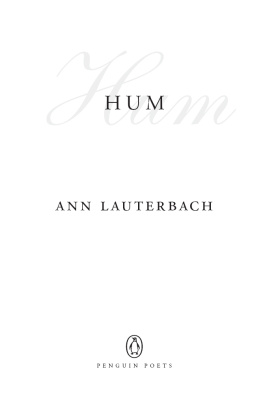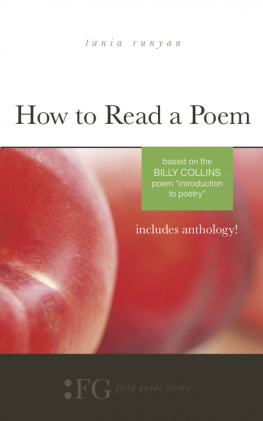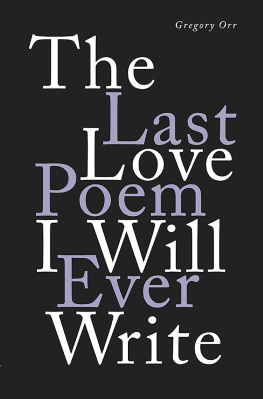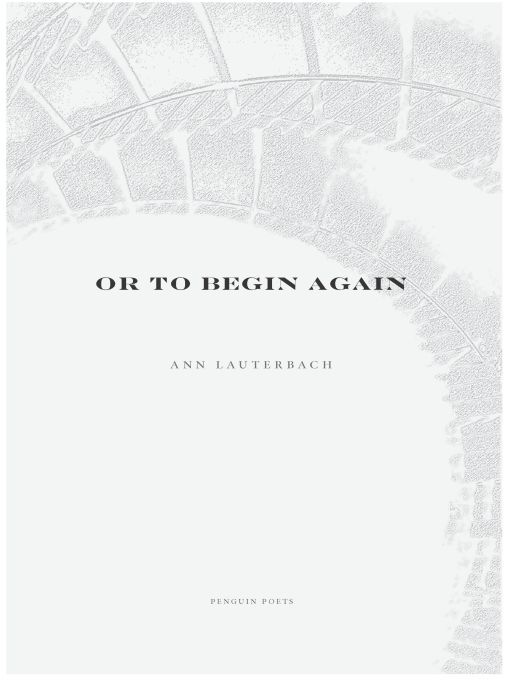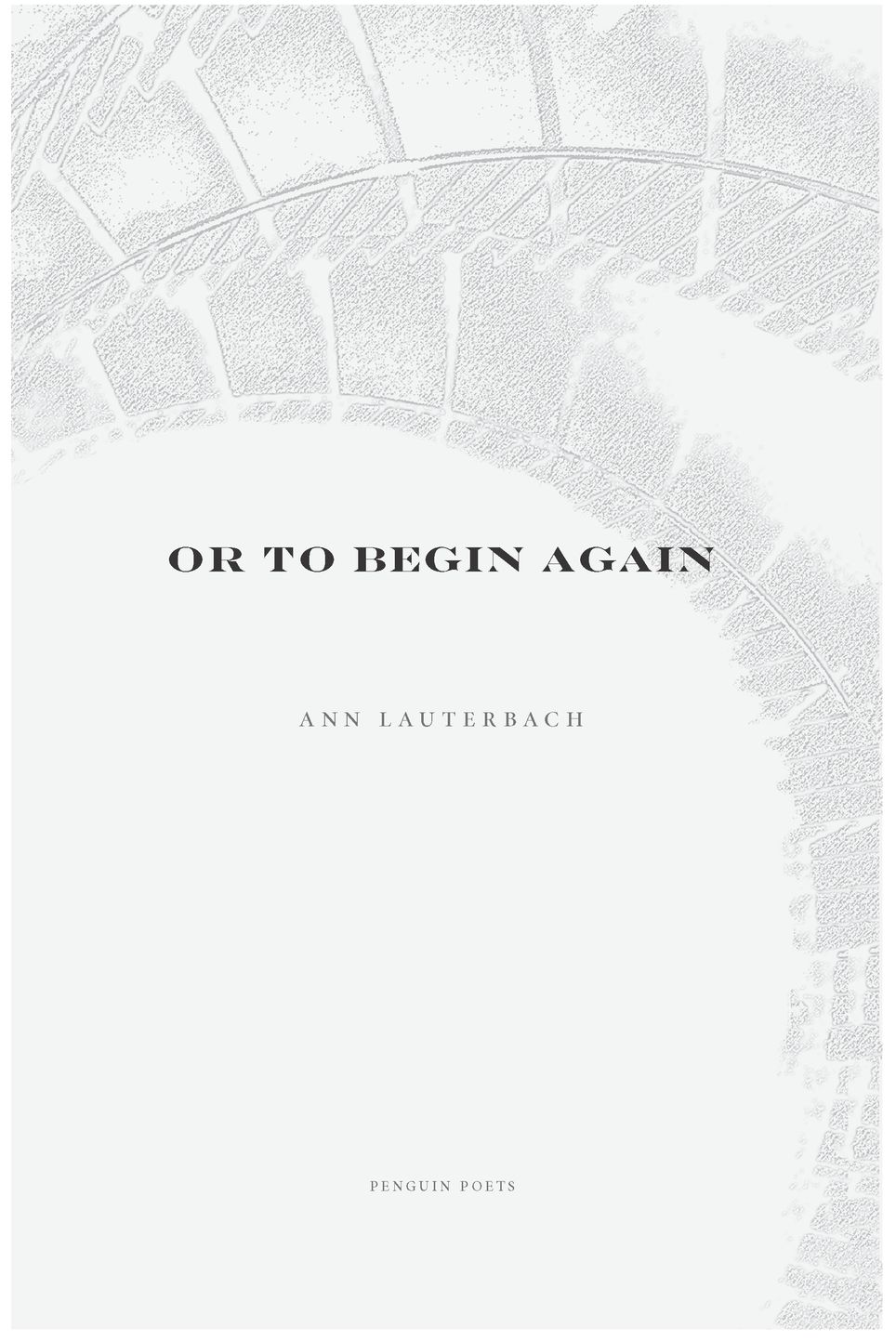Table of Contents
Also BY ANN LAUTERBACH
Hum
If in Time: Selected Poems 1975-2000
On a Stair
And for Example
Clamor
Before Recollection
Many Times, But Then
The Night Sky: Writings on the Poetics of Experience
Books with Artists
Thripsis
(with Joe Brainard)
A Clown, Some Colors, A Doll, Her Stories,
A Song, A Moonlit Cove
(with Ellen Phelan)
How Things Bear Their Telling
(with Lucio Pozzi)
Greeks
(with Jan Groover and Bruce Boice)
Sacred Weather
(with Louisa Chase)
For Constance Kaine and Thomas Neurath
In memory of Nikos Stangos
ACKNOWLEDGMENTS
The author would like to express her thanks to the editors of the journals in which some of these poems, often in earlier versions, first appeared: Atlanta Review, Bard Papers, Conjunctions, Dog Under Porch, GlitterPony, No: A Journal of the Arts, 6x6. An earlier version of Nothing to Say was published by Belladonna Books, #85.
Also: continued gratitude and affection to Paul Slovak at Viking Penguin; and to Lourdes Lopez and Anna Moschkovatis for their generous guidance and help; and to my colleagues and students at Bard College, for providing a buoyant community of inquiry and response.
A NOTE TO THE READER:
When a proper name appears in parenthesis after a title, it often indicates that the poem has been drawn from an encounter; notations written as I walked through an exhibition, or listened to someone give a talk; or from my reading of an essay or poem. Throughout this collection, I am interested in differences between spoken utterance and written text.
I.
The way of life is wonderful; it is by abandonment.
EMERSON, CIRCLES
BIRD (THOREAU)
1.
The great stalks are alert, their
shambles piled: maybe another parade.
An evident gray, a slow march
and legions rudderless; an ordinary flow.
These none of them quite real, none present,
like mischief in a dream: the blue garment, the rusty blade.
Came late or have you come late or are you, you are late
then on into wakened sobrietys itch.
The great stalks move slightly. They press back.
Waiting folds upward into a shape
to be seen later, or not seen, not now, not later.
Take hold of this garment, this was said.
The thrust of these injunctions. Take hold of the blade.
2.
Stepping man is stiff in the shade.
Let him be, or chop him down.
At the far side of the miserable hill
an orchestra is rehearsing for the factorys ball.
As usual, a train is near, but there are no feet.
The wheels peel off into global dust
and there is flesh, naked flesh, exposed to it.
Where were you? asks stepping man.
Where are we? you answer, taking shelter.
In the other, invisible mode I glimpsed him
walking away, toward the river, into a meadow.
The head of stepping man is bowed. He
seems to be alone in history, alone in the brush.
3.
Stepping man: cowed, immobile, an
invention of the nude season; an invention of
new arrivals and the one tulip and
beating of the woman with a baseball bat.
He stepped on her face.
Hear these enactments
or forgo them in their temporal settings.
The material of the world? Will?
How the Jesuit and the young woman
might have walked along an avenue in 1960
and then, this long, this far away
in the tangle of the bare, emergent copse.
Stepping man recalls Thoreau and is envious.
4.
Drab us; lonely sequitur. Stepping man, distilled,
no more than a fake. Quaint acquisition, no
more than material fiction
to see or not to see. He
cannot look up, and the light
drifts across his shoulders
as the river slinks on to curse
his rigid stride:
New York, Albany, Troy, then
night and the music he might have known.
Stepping man, burning ash, the birds
quick targetcarries the sky on its back.
DEAR BLANK
The instant quarantine on its shelf.
Deletion ranged upward, proto-winged,
enough to go on, as if singular.
To then, if it were then
it looks like you are writing a letter
interrupts Knowledge, whose source cannot
be owned. Try not to fall apart.
Try to stay on the case, in case you need to fall
into speech, example, It looks like you are writing
a letter. To whom it may concern.
To be then concerned.
And so the unobserved passes through its glass
twilight. Hitched to its seam,
a spectacle tangles with a spider
caught among settings, conquests.
Nowhere does the announcement flair,
nowhere does the exception pertain.
The refrain, its indifference and scorn,
travels into the familiar trace of the already consumed.
Abstraction, the stagnant sign, becomes a wager.
And yet, one wants to say and yet,
night will come down over the water
and the train will approach its final destination.
She will turn her attention to leisure
the good car, the good china, the good ros.
Some eccentric ground will form under the atmosphere
where the bones lie, where the burned books
nourish the lilac. She will recall a friends comment,
It looks like you are writing a letter.
Would you like help?
Others escaped. They will not sign their names.
They will stay for a while on a Greek island
while a child is conceived in another country.
She will say that its name must be pronounced
the same in French as in English
in the vicinity of the letter, in the habit of grace,
like, or unlike, the disinterested bird.
And so the generic is elicited from under the hood
along with anything winged, or sudden,
small in its habit and domain.
Witnessing the close, collecting the stuff,
counting the days until
what is pronounced comes into view
as a picture of a criminal or a lover or a child.
Remember? What was the name?
Dear Dick, Dear Pris, Dear Jen, Dear Tom.
ANTS IN THE SUGAR (BLANCHOT/MALLARM)
1.
She puts the beginning into moist stuff, vague
but substantial
among attributes. She puts the beginning in
as thought or as dream
but not to be praised or worked over,
not to be given to enterprise. She puts it in.
Something closes around it.
What then? Tireless, flamboyant sequence. Guards running beside the car
like so many fish tagging a whales belly,
a girl shines and flips like a coin,
goldfinches loop
among branches of crab apple.
Nature not at all present
and the present not present
at any beginning.
Quickening, surrender,
failure and omission coincident
what rots out a trophy scent
trots out its song
phantom aptitude
for which there is only a parade
moving through its sleeve
bringing the last to the first
parting the ritual valve


